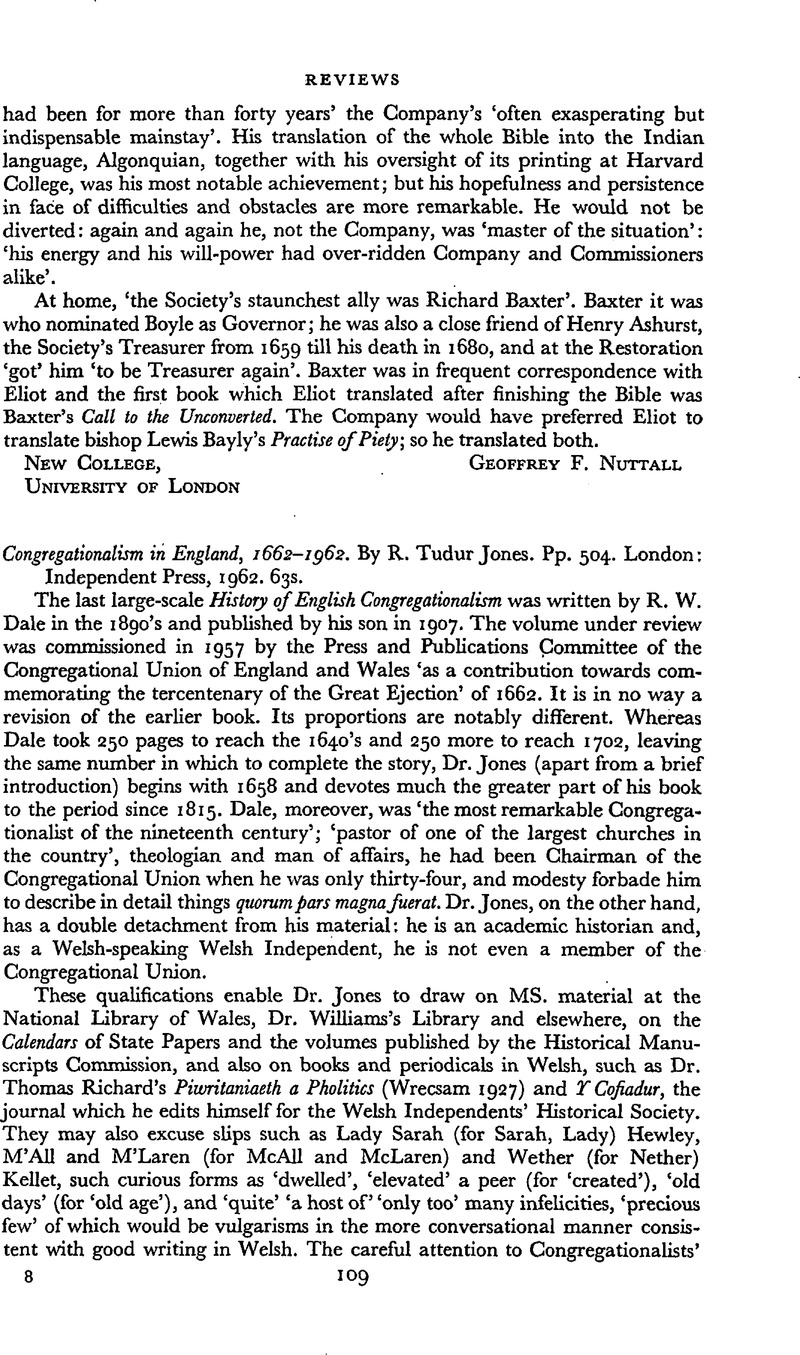No CrossRef data available.
Published online by Cambridge University Press: 25 March 2011

page 110 note 1 Even he ‘for some time, entertained conscientious scruples respecting uniting in the ordination of a minister without a stated charge’: Evangelical Magazine (1807), 539.Google Scholar
page 110 note 2 Actually, in the source of the passage used as authority for this statement it is observed that the Suffolk church which thus limited the administration of the Lord's Supper to the pastor ‘retained some very rigid notions’ on this subject.
page 111 note 1 The unidentified ‘Barrow’ in the list of John Owen's ‘Vnder-Officers’ (72 n.6) was probably James Baron, who, after his ejection in 1660 from Hendred, Berkshire, lived in Bunhill Fields: Anthony Wood describes him as Independent, and he witnessed one Congregational minister's Will and received £10 under another's.